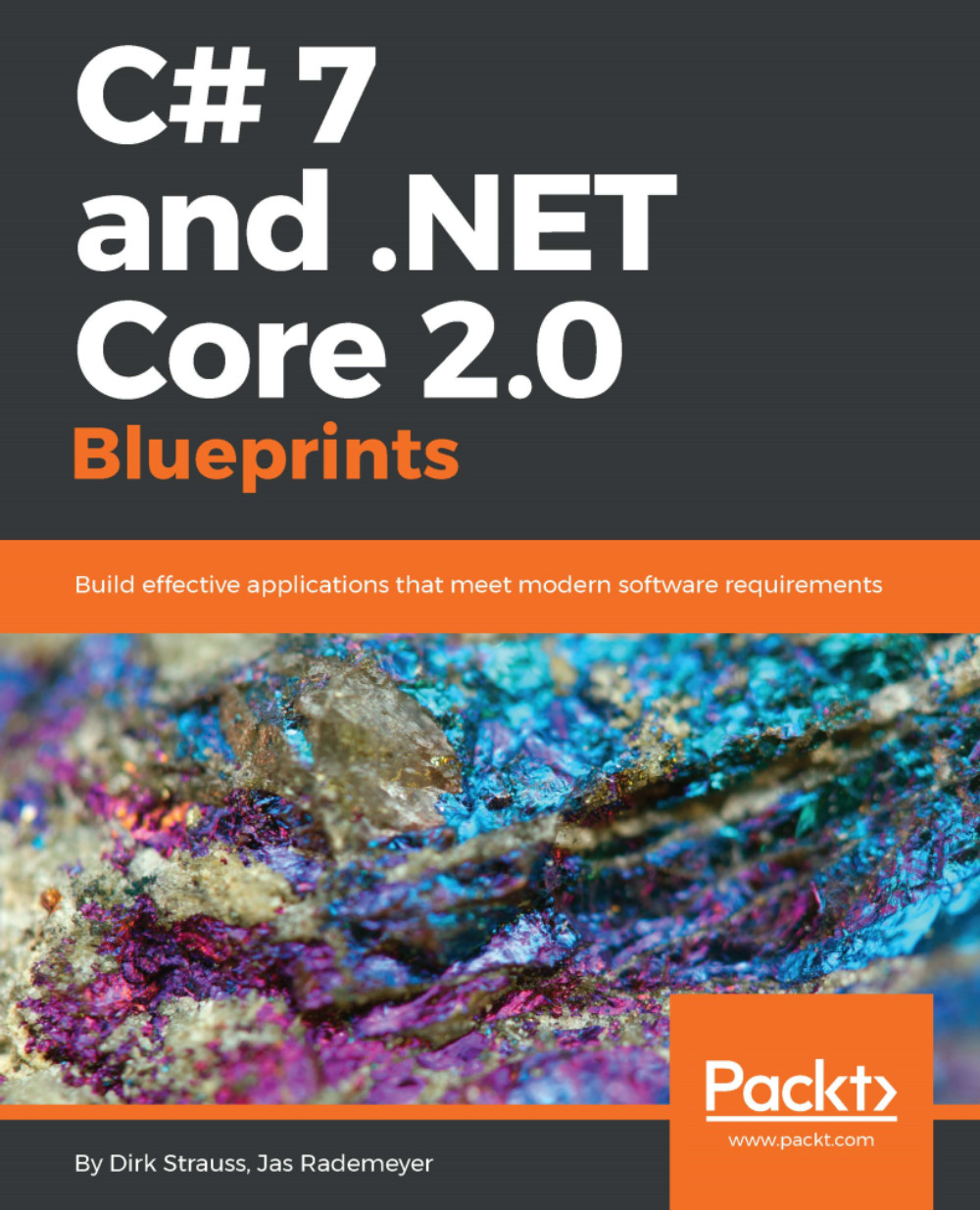C# 7 is a fantastic release and is available in Visual Studio 2017. It introduces developers to a lot of powerful features, some of which were previously only available in other languages. The new features introduced in C# 7 allow developers to write less code and be more productive.
The features available are:
- Tuples
- Pattern matching
- Out variables
- Deconstruction
- Local functions
- Improvements to literals
- Ref returns and locals
- Generalized async and return types
- Expression bodies for accessors, constructors, and finalizers
- Throw expressions
This chapter will take you through some of these features, while the rest of the book will introduce you to some of the other features as we go along. In this chapter, we will create an eBookManager application. If you are like me, you have eBooks scattered all over your hard drives and some external drives as well. This application will provide a mechanism to bring all these various locations together into a Virtual Storage Space. The application is functional, but can be further enhanced to suit your needs. The scope for an application such as this is vast. You can download the source code from GitHub (https://github.com/PacktPublishing/CSharp7-and-.NET-Core-2.0-Blueprints) and follow it to see some of the new features of C# 7 in action.
Let's begin!



